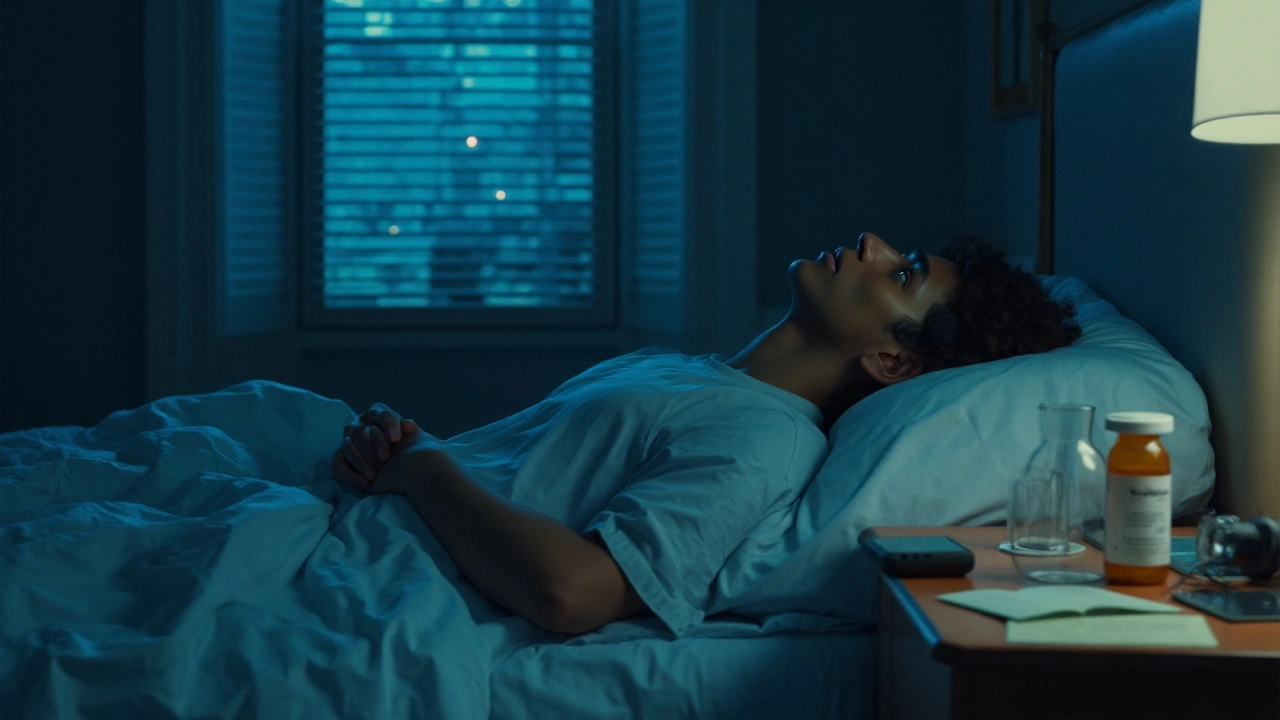ADHD Medication Sleep: What You Need to Know
If you take medication for ADHD, you’ve probably noticed that bedtime can feel like a battle. Stimulant pills that help you focus during the day often leave you wired when the lights go out. The good news? You don’t have to choose between clear thinking and a good night’s sleep. Below we break down why the meds interfere with rest and give you real‑world tricks that actually work.
Why ADHD Stimulants Can Disrupt Your Night
Most ADHD prescriptions—Adderall, Ritalin, Vyvanse—are built to boost dopamine and norepinephrine. Those chemicals sharpen attention, but they also crank up your heart rate and keep your brain alert. If the dose is taken too late, the drug’s half‑life can stretch into bedtime, making it hard to wind down.
Even short‑acting formulas can cause a “rebound” effect after they wear off. You might feel suddenly fatigued, then awake again in a panic because your body is trying to catch up on sleep it missed earlier. Another hidden factor is anxiety. Stimulants can raise anxiety levels, and anxiety is a classic roadblock to falling asleep.
Some people also experience vivid dreams or nightmares. The brain’s increased activity doesn’t stop at the pillow; it just changes the storyline. All of these factors combine to turn a normal night into a restless one.
Practical Ways to Sleep Better on ADHD Medication
First, talk to your doctor about timing. Taking a morning dose before 9 a.m. gives the medication plenty of time to taper off before you hit the sack. If you need an extra boost later in the day, ask about a short‑acting pill that you can finish by early afternoon.
Second, consider a lower dose or a different formulation. Some patients find that a once‑daily extended‑release version actually smooths out the peaks and valleys, leaving a gentler effect at night.
Third, build a solid sleep routine. Keep lights dim an hour before bed, avoid screens, and try a calming activity—reading, light stretching, or a short meditation. Consistency signals your brain that it’s time to shut down.
Fourth, think about non‑stimulant options. Medications like atomoxetine or guanfacine can control ADHD symptoms without the same sleep‑sapping buzz. If your doctor thinks it’s safe, swapping to one of these can make a noticeable difference.
Fifth, supplement wisely. Melatonin taken 30 minutes before bedtime can help reset your internal clock, especially if you’ve been shifting your sleep schedule. Just keep the dose low (0.5‑1 mg) to avoid morning grogginess.
Finally, watch what you eat and drink late in the day. Caffeine, energy drinks, and even sugary snacks can jam the same pathways that ADHD meds use, amplifying the wake‑up signal. Stick to water and a light snack if you’re hungry after dinner.
Trying a few of these steps often leads to a noticeable improvement. Remember, every body reacts a bit differently, so give each change a week or two before deciding it’s not working. With the right tweaks, you can keep the focus boost you need during daylight and still enjoy a refreshing night’s sleep.

